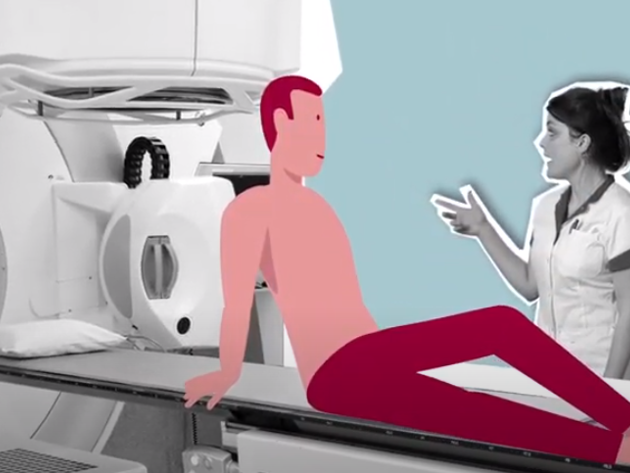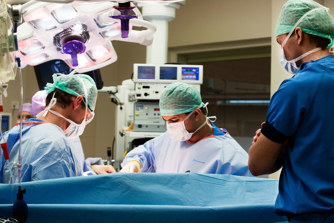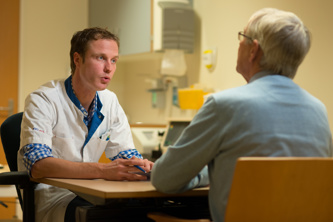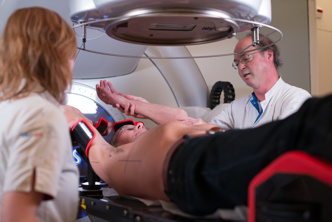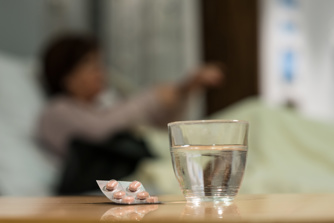Radiotherapy for stomach cancer
During a multidisciplinary team meeting, your specialists will determine which treatment option is right for you. This may be surgery, sometimes preceded by radiotherapy.
Curative treatment
Treatment that aims to cure stomach cancer is called a curative treatment. Stomach cancer is often treated through a combination of chemotherapy and surgery. In some cases, external beam radiotherapy is deemed necessary, and in other cases it is delivered as part of a clinical trial. Radiotherapy for stomach cancer typically consists of 25 sessions in combination with chemotherapy.
The chemotherapy can boost the effects of the radiation on the tumor. You will have to come to the hospital for IV chemotherapy once a week. Thanks to the latest developments in radiation technology, we can aim the beams at your tumor with increased precision, preventing harm from the surrounding healthy tissue. Delivery of radiation usually takes a few minutes.
Palliative treatment
Radiation treatment that aims to alleviate symptoms is called a palliative treatment. You will receive fewer radiation sessions (1 to 4). Your radiation oncologist will tell you more about the treatment plan during your first consultation.
 nl
nl
